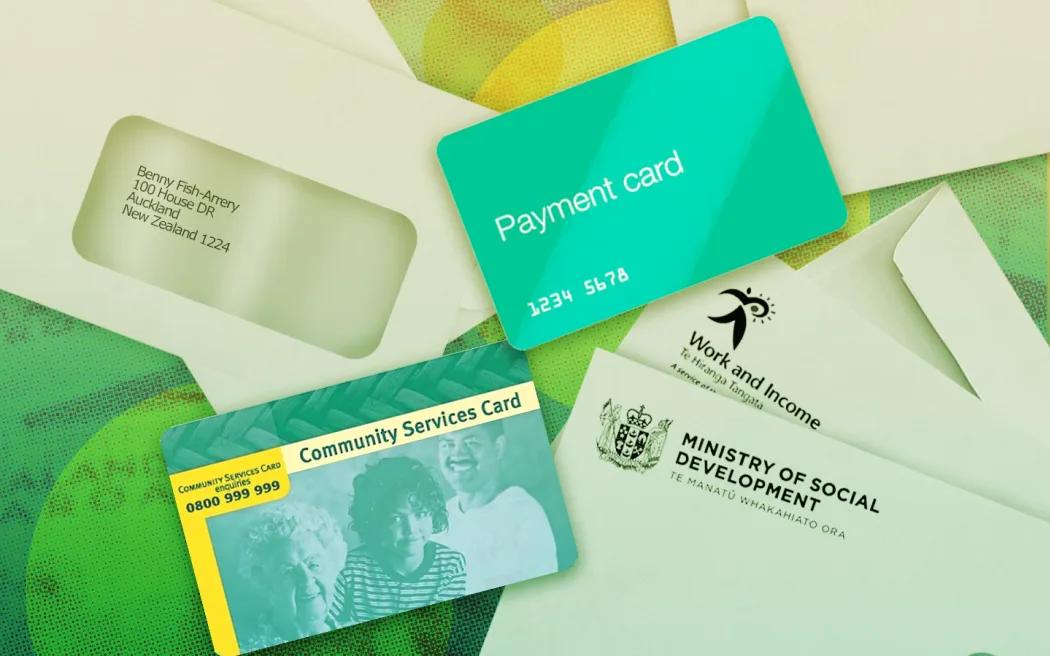

Auckland Action Against Poverty coordinator Brooke Pao Stanley.
Photo: RNZ / E-Tangata
Helping people navigate benefit sanctions
Brooke Pao Stanley, of Auckland Action Against Poverty (AAAP), discusses the effects of the new benefit sanctions on Pacific people.



World Buskers Festival welcomes Māori and Pacific performers for historic first

From shyness to leadership: Head girl’s journey to uplifting Pacific youth



World Buskers Festival welcomes Māori and Pacific performers for historic first

From shyness to leadership: Head girl’s journey to uplifting Pacific youth
Many Kiwis are starting to feel the pressure as the coalition government pushes forward with benefit sanctions.
The sanctions add several new conditions for those on the benefit, including but not limited to, making those on the Jobseeker Support reapply every six months and a money management sanction that will send half a person's benefit to a payment card, restricting what they can purchase.
As the government has ramped up sanctions for consequences for people who fail to meet minimum requirements, an advocacy group is offering workshops for people accessing services through Work and Income.
Auckland Action Against Poverty (AAAP) coordinator Brooke Pao Stanley told PMN Tuvalu’s Fala Haulangi, that navigating the WINZ process has become harder.
“We're seeing an increase in people coming to get support from us who have been made redundant or recently lost their jobs.
“And so people who haven't actually had to access the work and income system before, are finding that this first time round, it's a lot harder to navigate than they assumed or perceived.”

New benefit requirements are making it harder for kiwi families to utilise them says Stanley. Photo/Supplied
She adds that those not working should be able to provide for their families no matter their situation.
“A lot of people in our communities are looking after children. That should be recognised as being formal work, caring for family members that might be sick.
“They might have disabilities themselves where they can't work.
“There's lots of people in our community that's just working or what the society or even this government expects of them isn't realistic.”
The Pacific community needs to understand that the laws and policies that politicians create affect their daily lives, Stanley says.
“All the decisions that they make in that space has a direct impact for our communities. For example, if they decide that they're going to cut funding to our healthcare services, that means that on the ground, people are waiting six hours to see a doctor, or there's an increase in fees that are being charged. I just want our communities to understand that.”
Stanley says the government has instructed WINZ staff to severely penalise those who don't meet their benefit obligations under the new traffic light system.
She says this can lead to a decrease in their benefits or, in some cases cutting their benefit completely.
“This government has told Work and Income officers to start applying punishments more harshly for people who aren't meeting their obligations to get their benefits.
“They've introduced this traffic light system where if you're meeting all of your obligations, you're fine. You're in the green light. If you've missed an obligation, you go into what they call orange light, which means that you have five working days to get in touch with them.
“If you don't get in touch with them, in those five working days, then you go into red. If you have children, it will only be cut by 50 per cent, and if you don't, then it'll be cut by 100 per cent.
“We're finding that now it's a lot harder to get support for really simple things like food, help with rent arrears, even being able to get on a proper benefit is taking a lot longer.”
The sanctions are targeting the Pasifika community, Stanley says, but all hope isn't lost for those who have had their benefits cut. The AAAP will be running community workshops to navigate the benefits space.
“They're coming down more harshly on our communities, and so we just want to make sure that people are aware that this is happening.
“We're going to be offering community education workshops to let people know how to navigate this space. We want to start educating our community about what their rights are.”

